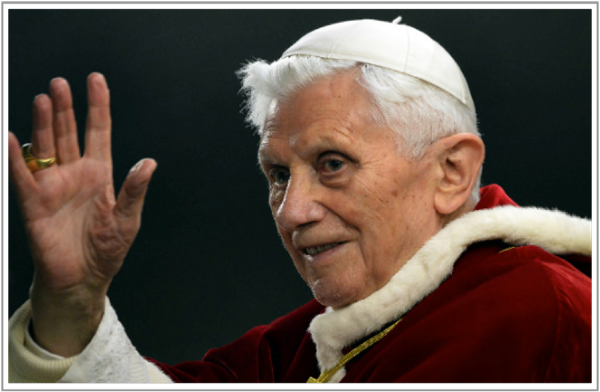I've not written much on my blog in recent times, so I thought I should make an effort.
From time to time I am asked interesting questions of a general kind which I give written answers to (generally by email). I used to include such "answers" in our weekly bulletin. It might be worth including these occasional questions and answers here.
Question:
Consider a Catholic couple marrying at a register office. They then ask for a blessing in church.
I just don't understand why they would ask for a blessing afterwards. If they wanted the church's blessing why wouldn't they just marry in church in the first place?
If there was a reason they were unable to do that isn't it hypocritical of the church to give a blessing afterwards?
Answer:
First, I ought to say that I am not an expert on Canon Law, nor indeed civil law - so any corrections or clarifications a reader might give will be welcome. Please don't take this as a definitive guide!
I presume that you are speaking of the UK where marriages can be contracted according to civil law during a religious ceremony. In most parts of the world (including Italy!) the civil marriage takes place before the equivalent of a JP, usually the day before the religious ceremony. In these cases the civil and the religious ceremonies are always separate, so your question does not really apply. In the UK and places with the same practice, a "blessing" would therefore be the names given to some kind of a Church ceremony which takes place after the civil marriage and which would have no (civil) legal standing.
I know that in the Church of England it used to be common for people to ask for a "blessing" after a civil marriage when the Church's law prevented a marriage taking place in the Church, almost always because one or both of the parties had been divorced. I think the Anglican practice has changed a lot now so that such unions can take place in Church. It may be the case, of course, that the same procedure may be followed in the near future for same-sex couples, where the Vicar is inclined to bless such a "marriage".
I have never come across public ceremonies of this kind in the Catholic Church. If someone cannot get married in the Catholic Church, then many priests may be prepared to pray privately with a couple, and even bless the wedding rings, if not the wedding.
In fact, the whole idea of a separate "blessing" of a marriage is wrong, from a Catholic viewpoint, as the Church's role in a wedding ceremony is precisely to bless the marriage after the couple have exchanged their vows. It is the exchange of vows which makes the sacrament, and the nuptial blessing "seals" it, in a sense - so you can't "bless" a marriage which can't take place in Church.
The kind of ceremony which you speak of is properly called a "convalidation", rather than a "blessing".
A catholic who marries outside the Church without a dispensation is irregularly married. Provided there is no bar to marriage, (such as divorce) such a marriage should be "convalidated" for it to be fully recognised by the Church. A person who is irregularly married ought not to approach the sacraments until a convalidation has taken place. This does not mean - strictly speaking - that the Church does not recognise the marriage (sometimes people say "not married in the eyes of God"). Clearly the Church does recognise it in a certain sense, if not then it would have no impact on the admissibility to the sacraments.
In the situation which I guess you presume, there's a simple short answer:
If a couple who have contracted an "irregular" marriage, approach the Church to "regularise" it, then provided there is nothing preventing it, a priest would be wrong to refuse.
So in these circumstances the "blessing" (convalidation) is not only permitted, but is to be encouraged.
Hypocrisy raises a few other issues.
The circumstances in which may have led to such a request being made obviously might vary, and it is not always easy to speculate on motives. There may be many reasons why a Catholic might have married in a registry office. It might be because of (perceived) cost. Or sometimes family circumstances - such as difficult relationships between family members. In times gone by it might have been because the bride was pregnant, or because the families disapproved of the union (and the couple went to Gretna Green). Frankly it's unlikely that a couple would ask for a "blessing" (convalidation) on a whim.
In many cases the request for convalidation follows a long time of absence from the practice of the faith. In such circumstances this is a cause for joy, hardly hypocrisy. (No more hypocritical than the prodigal son, you might say).
More difficult nowadays is when a couple want a wedding at a smart hotel, or on a beach in the Dominican Republic, rather than in Church, then approach the Church shortly afterwards, or even before such a ceremony. In those circumstances the Church generally refuses to give a dispensation for the marriage to occur outside the Church (allowable circumstances would be in the Church of the other (non-catholic) partner). We do not encourage such arrangements, because the marriage should be seen as a public religious ceremony, indeed a sacrament, not just a moment of private and family celebration. These arrangements - like the practice of "living together" - make the partnership/marriage a private matter, rather than a public declaration of commitment.
However, even in these circumstances I don't think a priest should refuse, and I don't think the Bishop would normally refuse to give the necessary permission for the convalidation. Bear in mind that the convalidation is generally a very quiet matter and rarely an occasion for all the extravagance of a wedding.


